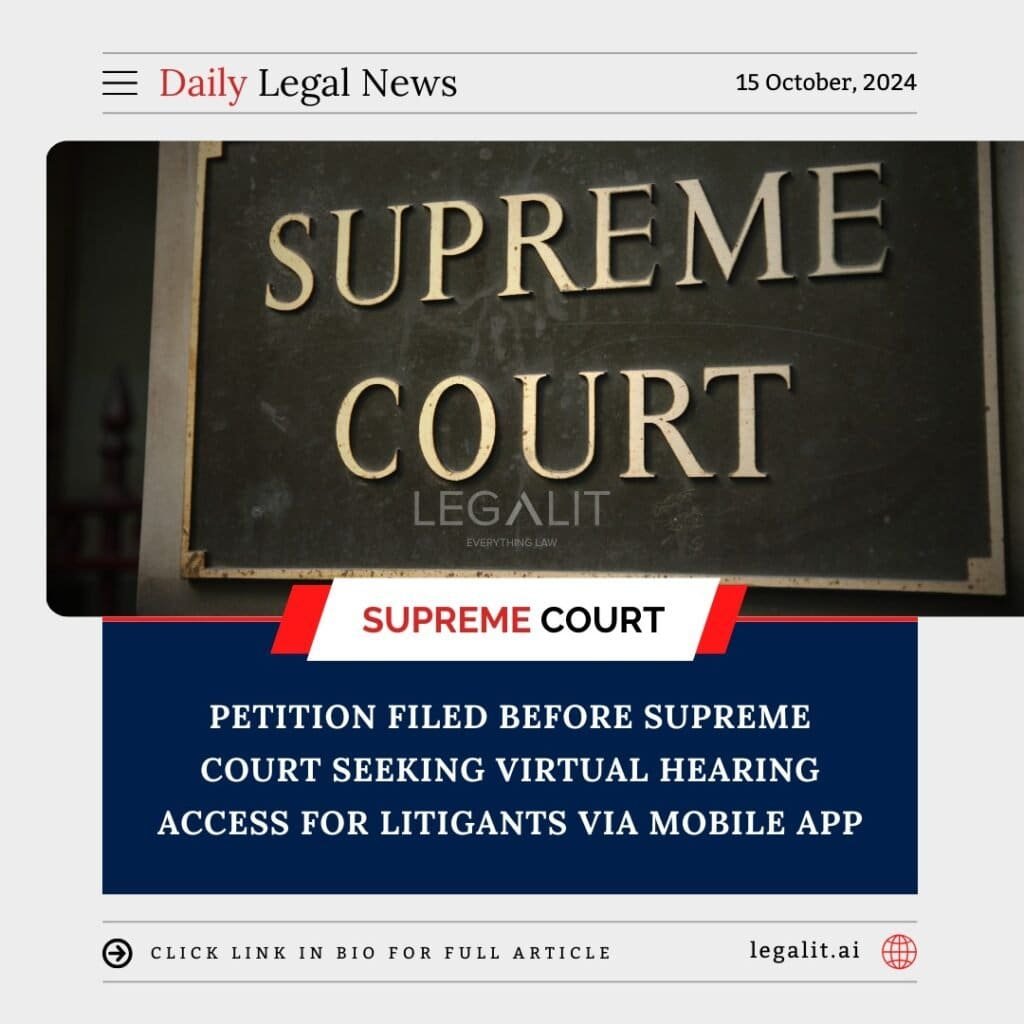
The Supreme Court of India is currently considering a petition that calls for providing litigants access to virtual hearings through a dedicated mobile application. This plea, if accepted, could revolutionize the way justice is delivered in the digital era, making courts more accessible for the general public. Here’s a detailed overview of the case:
Background of the Case:
With the onset of the COVID-19 pandemic, the Indian judiciary swiftly adapted to virtual hearings, enabling lawyers and judges to conduct proceedings remotely. While this move was widely appreciated for maintaining the functioning of courts amid lockdowns, the current system mostly limits access to legal professionals, with litigants unable to join hearings directly. This scenario has led to a demand for a more inclusive approach, allowing the actual parties involved in cases to witness proceedings.
The petition argues that, in the interest of transparency and inclusivity, litigants should be allowed direct access to their case hearings via a mobile application, which could provide real-time updates and the ability to virtually attend hearings. This system would enhance trust in the judicial process and ensure that litigants stay updated on their case status.
Court’s Ruling and Reasoning:
While the Supreme Court is yet to issue a verdict on this petition, the matter raises critical questions about technological advancements in the judiciary. The court’s stance will likely weigh both the benefits of greater access and the practical challenges of managing a mobile app for such a vast and diverse population. Initial observations from the court suggest a cautious approach, with concerns about data security, infrastructure, and managing technical glitches being voiced.
Implications of the Judgment:
If the Supreme Court agrees to this plea, it could mark a significant step toward digitizing the Indian judiciary. By allowing litigants to access virtual hearings via a user-friendly app, the court system would become more transparent and accessible. Moreover, it could reduce the need for physical appearances, saving time and resources for all parties involved.
On the flip side, ensuring robust cybersecurity and dealing with the potential overload of data could pose challenges for the judiciary. There is also the issue of ensuring that users across different socio-economic backgrounds can access and use this technology effectively.
Need for Reforms:
The petition highlights the growing need for reforms in how the judiciary interacts with technology. While virtual courts have been a progressive step, expanding access to litigants is a natural next phase in making the system more inclusive. Additionally, the court must consider how to balance privacy concerns with the demand for greater transparency.
Legal experts also emphasize the importance of educating the general public on the use of such technology. Widespread legal literacy campaigns would be essential to ensure that people, especially those from rural or underprivileged backgrounds, can take full advantage of virtual hearings.
Conclusion:
The petition seeking virtual hearing access via a mobile app has the potential to bring about a significant change in the Indian judicial system. As the Supreme Court deliberates on this matter, it must balance the need for greater transparency and access with concerns around security, infrastructure, and user accessibility. If successful, this initiative could modernize the judicial process and offer a more inclusive platform for all litigants to be directly involved in their legal proceedings.